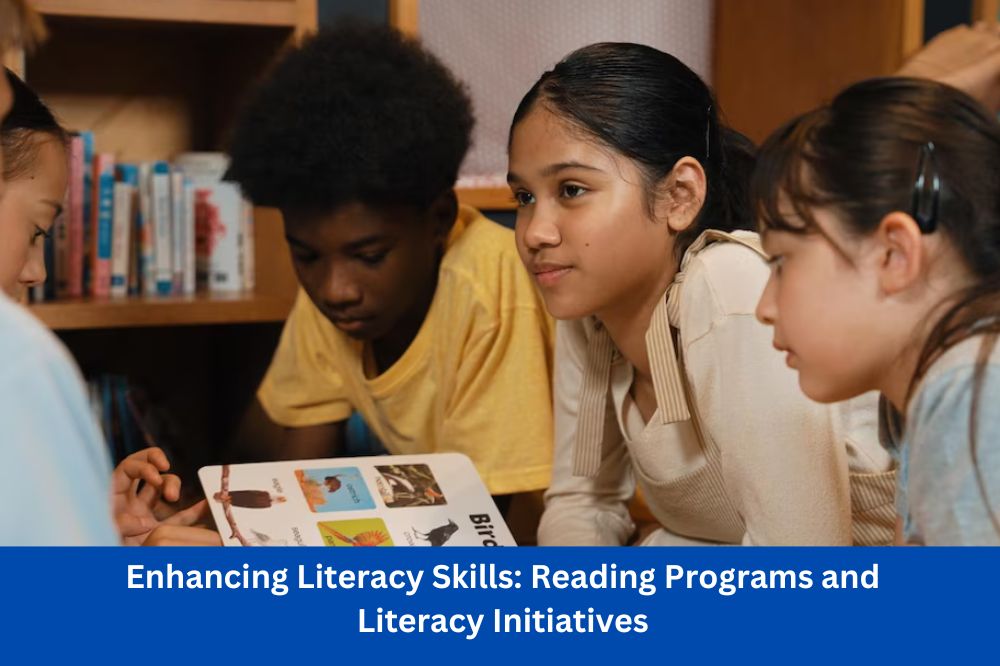Introduction
The School is known for its holistic educational approach, emphasizes the development of strong literacy skills from an early age. One of the Best Schools in Chandigarh with fee structure, Banyan Tree School has crafted a comprehensive literacy framework that supports students from their formative years into their later schooling. This article explores the various reading programs and literacy initiatives that play a pivotal role in this developmental journey, ensuring that students not only learn to read but also to love reading.
-
The Importance of Early Literacy Development
Literacy skills are foundational to educational success and lifelong learning. Recognizing this, the School invests in early literacy programs that start in nursery and continue throughout a student’s educational career. Collaborations with leading nursery schools in Chandigarh enable the implementation of cutting-edge pedagogical strategies that focus on phonemic awareness, vocabulary building, and initial reading skills through interactive and engaging methods.
-
Phonics-Based Reading Programs
At the nursery and kindergarten levels, the School implements phonics-based reading programs. These programs are designed to teach children the relationships between letters and sounds, fostering early reading skills. By integrating fun activities such as songs, games, and puzzles, the school makes learning to read an enjoyable and rewarding experience for young learners.
-
Integrated Literacy Approach
Moving beyond phonics, the School adopts an integrated literacy approach as students progress. This methodology encompasses reading, writing, speaking, and listening skills, which are interwoven throughout the curriculum. Literature-rich classrooms, thematic units that incorporate diverse subjects, and projects that require active communication and research are hallmark features of this approach.
-
Diverse Reading Materials
Understanding that diversity in reading materials can enhance engagement and comprehension, the school’s libraries are stocked with a wide range of books. These include picture books, early readers, chapter books, non-fiction, and multicultural literature. This diversity not only caters to different reading levels and interests but also promotes cultural awareness and empathy among students.
-
Reading Challenges and Book Clubs
To further promote reading, the School organizes reading challenges and book clubs. These initiatives encourage students to explore various genres and authors, fostering a love for reading while enhancing comprehension skills. Book clubs, in particular, provide a platform for students to discuss their thoughts and perspectives on different books, deepening their understanding and critical thinking skills.
-
Technology Integration in Literacy Learning
Leveraging technology, the School incorporates digital tools and resources in its literacy programs. E-books, reading apps, and interactive educational platforms are used to support traditional reading strategies, providing students with a multimodal and engaging learning experience. These technologies also allow for personalized learning paths, enabling teachers to tailor instruction based on individual student needs.
-
Literacy Through Drama and Storytelling
Drama and storytelling are powerful tools used at the School to enhance literacy skills. These activities encourage expressive language use and deepen comprehension by allowing students to enact and reinterpret stories. Participating in drama and storytelling helps students understand plot, character development, and narrative structure in an immersive and interactive way.
-
Parental Involvement in Literacy Development
Recognizing the critical role parents play in literacy development, the School actively involves parents in its reading programs. Workshops and seminars are offered to teach parents effective strategies for reading with their children at home. The school also hosts family reading nights and book swaps to build a community of readers and support the literacy journey from home.
-
Continuous Professional Development for Teachers
To ensure that literacy instruction remains top-notch, the School invests in continuous professional development for teachers. Workshops, seminars, and training sessions focused on the latest literacy teaching methods and materials are regular features. This commitment to professional growth ensures that teachers are well-equipped to deliver effective and engaging literacy instruction.
-
Literacy Assessments and Feedback Mechanisms
To continually improve and adapt its literacy programs, the School employs regular assessments and feedback mechanisms. These assessments are not merely evaluative but are used as tools to understand individual student needs, strengths, and areas for improvement. Feedback is provided in a constructive manner, allowing students to recognize their achievements and set goals for further development. This reflective practice ensures that literacy instruction is responsive and tailored to the learning requirements of each student.
-
Multilingual Literacy Programs
In recognition of the diverse linguistic background of its student body, the School has developed multilingual literacy programs. These programs support reading and writing in multiple languages, which not only bolsters cognitive development but also helps maintain cultural heritage and promote global citizenship. By providing literacy education in several languages, the school ensures inclusivity and broadens the linguistic horizons of its students.
-
Summer Reading Programs
To combat the “summer slide,” where students may lose some of their reading proficiency during the school break, the School offers summer reading programs. These programs are designed to keep students engaged with literacy through the summer months, offering themed reading lists, interactive online discussions, and even local library partnerships. This continuity in reading practice helps maintain and enhance literacy skills year-round.
-
Community-Based Literacy Projects
The School extends its literacy initiatives beyond the classroom through community-based projects. These projects involve students in real-world applications of their reading and writing skills, such as reading to younger children in community centers or participating in local storytelling festivals. These activities not only reinforce literacy skills but also build a sense of responsibility and community engagement among students.
Conclusion
The literacy initiatives at the School represent a comprehensive effort to develop proficient and enthusiastic readers. By integrating innovative reading programs, embracing technology, and fostering a community-wide commitment to literacy, the school sets its students on a path to academic success and lifelong learning. One of the best schools in chandigarh for nursery, Banyan Tree School continues to enhance its literacy programs, ensuring that every student receives the support and resources needed to become confident and capable readers.

